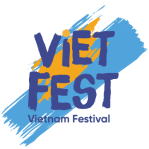Vietnam’s cinematic landscape will reach a new milestone when the first Ho Chi Minh City International Film Festival (HIFF) rolls out the red carpet to welcome filmmakers and guests from April 6-13.
The country’s long overdue cinema law was finally revised last year and now permits local city governments to host international film festivals. Ho Chi Minh City, Vietnam’s largest city, seized this opportunity to organise its inaugural international film festival.
“This collaboration highlights the close partnership between governmental bodies and private companies, facilitated by an open policy allowing private entities to participate in government social projects,” says HIFF executive director Pham Minh Toan.
His event company Vietfest, which specialises in running large-scale entertainment and cultural projects, has previously collaborated with the Department of Culture and Sports of HCMC on several major events such as the Ho Chi Minh City International Music Festival (HOZO). Three successful editions have been held for HOZO since 2019, with latest hosting 250 artists and 150,000 attendees.
Toan and long-time collaborator Do Hoa have spent the past few years cultivating the idea of an international film festival in Vietnam. “We established Vietfest, which stands for Vietnam Festival, to organise multiple type of festivals, including film,” says Hoa, who is HIFF deputy executive director. “We believed the time for a film festival in HCMC would come and have included activities related to film festivals in our agenda during business trips.”
Toan and Hoa attended the Hong Kong International Film Festival in 2019, but Covid put a stop to overseas travelling until they visited South Korea’s Busan International Film Festival (BIFF) in 2022. Last year, they returned to Busan and travelled to Singapore and Indonesia to immerse themselves in various cultures and attend music and film festivals to gain insight and knowledge.
While many experts they met have expressed support, Toan says that the prevailing sentiment was often a cautious ‘wait and see’ approach. However, key figures such as filmmakers Phan Dang Di and Charlie Nguyen as well as film critic Le Hong Lam in Vietnam, alongside BIFF founder Kim Dong-ho and producer Jay Choi in South Korea and programmer Anderson Le in the US, provided steadfast support regardless of the uncertainties. They are all part of the HIFF team in advisory and other key roles.
After almost two years of networking and outreach, HIFF staged its international launch in Busan in October, with a few hundred guests in attendance at the Vietnam Night. “We have garnered significant support from local and international filmmakers and experts, notably from France and Korea,” says Toan. “This has instilled confidence in us to successfully execute the first edition at the current scale.”
Star guests
The inaugural HIFF will showcase more than 100 films over eight days through various sections such as a Southeast Asia competition, the first or second film competition and Vietnam Panorama. Industry events are also in place, from talks, workshops to a project market and a script lab.
Prominent guests set to participate include France-based director Anne Fontaine of opening film Bolero with her actor Raphaël Personnaz, Korean director Kim Han-min with his actors Park Myunghoon and Jung Jaeyoung from Noryang: Deadly Sea and Palme d’Or-winning Japanese director Hirokazu Kore-eda. Olivier Pere, Janice Chua, Tom Cross and Samuel Jamier are among the jury for the competitions.
Toan and Hoa are veterans marketing experts. They co-founded marketing agency Time Universal two decades ago, which would become the first company of the Time Group. Toan is chairman of Time Group, which comprises eight subsidiaries in the creative industry, including Vietfest, which apart from HOZO, is the organiser of Manga Comic Con Vietnam, Vietnam Classical Music Festival, Vietnam Design Week and more.
Despite their vast experience in organising big events, the journey is not without challenges as newcomers to the film industry. Toan admits: “Our biggest challenges stem from our limited understanding of how the film industry operates, compounded by the prevailing confusion in the Vietnamese market regarding cinema awards and film festivals. This has led to unexpected hurdles during implementation.
“Educating our audience about these new concepts has proven to be a significant undertaking, as many are unfamiliar with the intricacies of such events. There are numerous complexities involved, making it difficult to address everything in one response.”

